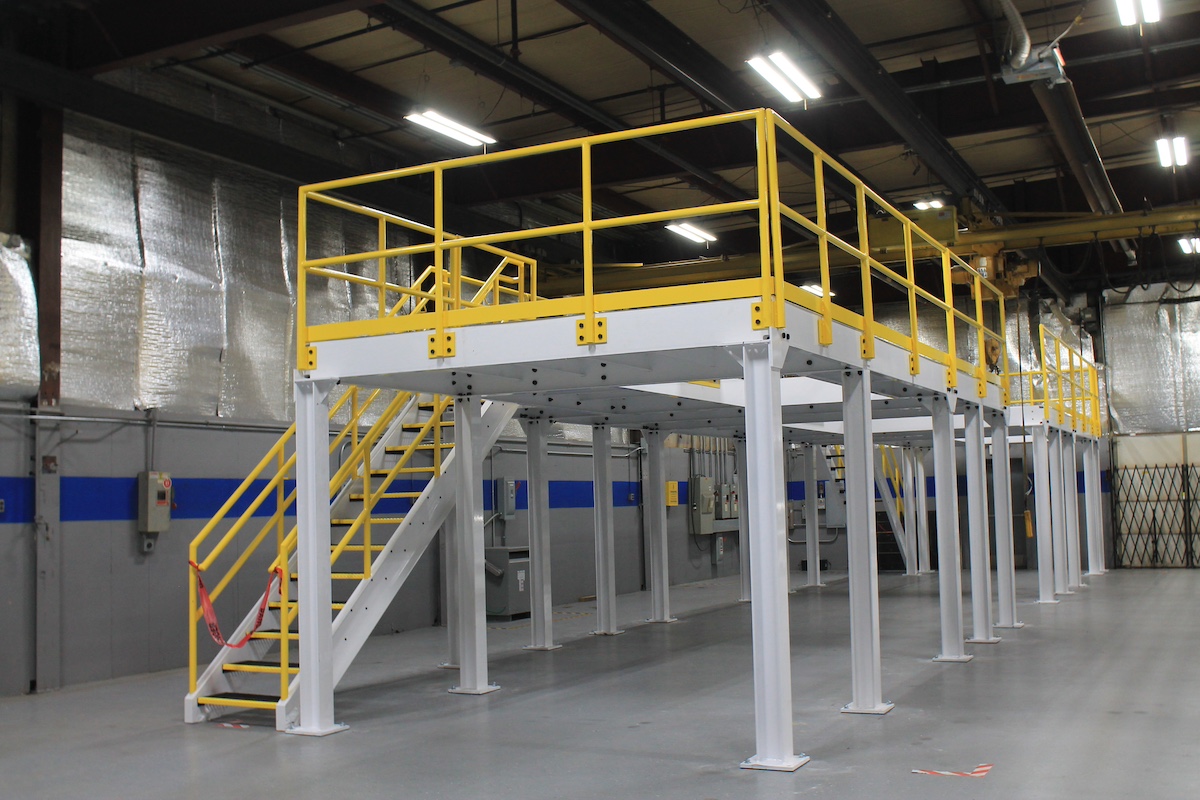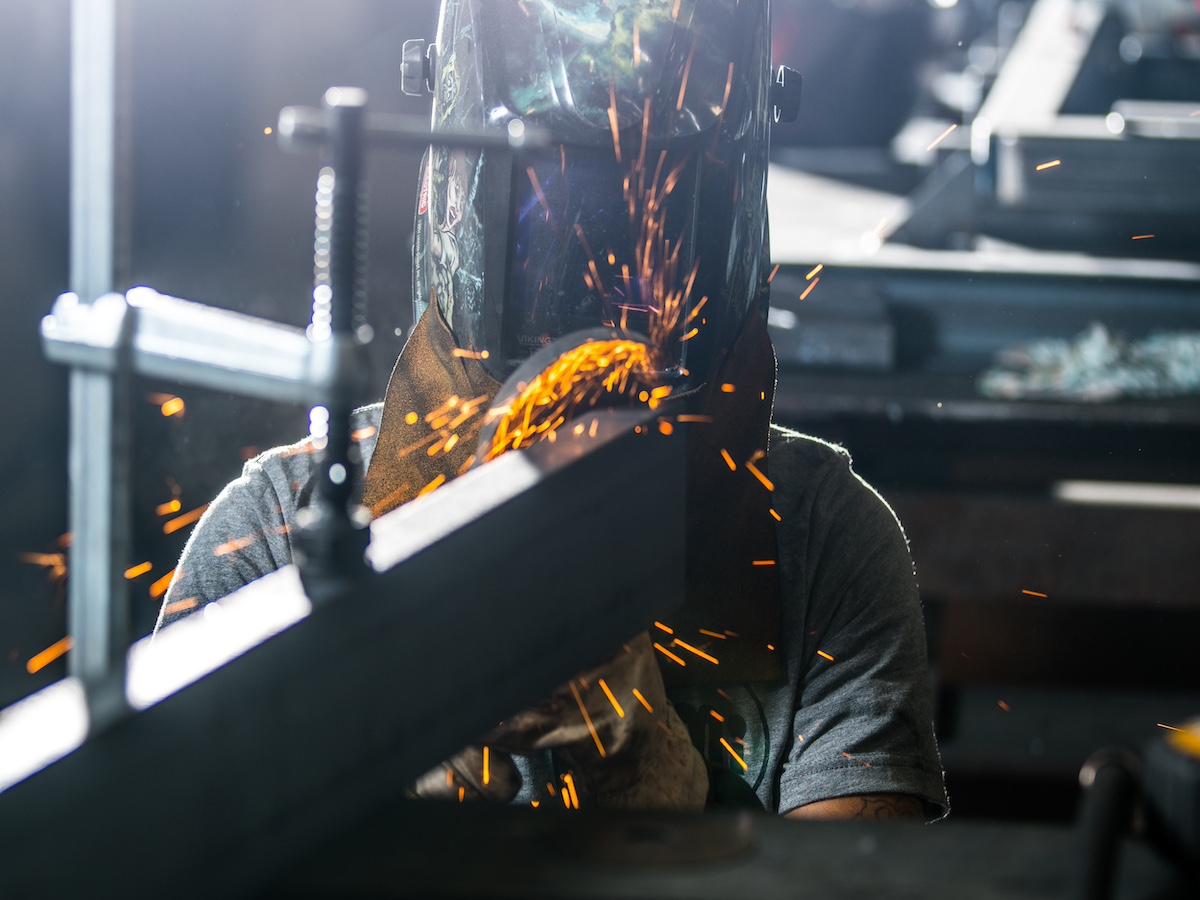Steel fabrication plays a crucial role in modern construction, providing strong, efficient, and adaptable solutions for buildings and infrastructure. Whether it’s skyscrapers, bridges, or industrial facilities, steel remains the material of choice due to its durability and versatility.
Advances in fabrication techniques, including automation, AI-driven precision cutting, and sustainable manufacturing, have further enhanced its impact on contemporary construction.
This guide explores how steel fabrication meets modern construction needs, its key benefits, and the latest innovations shaping the industry.
What is Steel Fabrication?
Steel fabrication is the process of cutting, bending, and assembling steel to create structural components for buildings, bridges, and other infrastructure. It involves multiple steps, including:
- Design and Planning – Using software like CAD (Computer-Aided Design) and BIM (Building Information Modeling) for precise engineering.
- Cutting and Shaping – Using CNC (Computer Numerical Control) machines, laser cutters, and plasma torches.
- Welding and Assembly – Joining steel components with high precision.
- Finishing and Coating – Applying protective coatings to enhance durability and prevent corrosion.
Why is Steel Fabrication Essential for Modern Construction?
Modern construction projects demand high efficiency, sustainability, and durability. Steel fabrication meets these requirements in several ways:
1. Strength and Durability
Steel has a high strength-to-weight ratio, making it ideal for large structures like skyscrapers, bridges, and industrial buildings. It withstands harsh weather conditions, seismic activities, and heavy loads, ensuring long-lasting performance.
2. Customization and Flexibility
With advanced fabrication techniques, steel structures can be customized to meet specific design needs. Prefabricated steel components allow architects and engineers to create unique designs without compromising strength.
3. Faster Construction and Cost Savings
Steel fabrication reduces construction time as components are manufactured off-site and assembled on location. This method minimizes labor costs, accelerates project timelines, and reduces material waste.
4. Sustainability and Environmental Benefits
Steel is 100% recyclable, making it an eco-friendly option for construction. Innovations in fabrication processes have reduced carbon emissions and energy consumption, further enhancing its sustainability.
Key Steel Fabrication Solutions in Construction
1. Prefabricated Steel Structures
Prefabrication involves manufacturing steel components in a controlled environment before transporting them to the construction site. This method ensures precision, reduces waste, and speeds up assembly.
2. Structural Steel Frames and Beams
Steel frames and beams form the backbone of many modern buildings, providing structural integrity and resistance to environmental stresses. These components are used in commercial buildings, residential complexes, and industrial facilities.
3. Modular Construction
Modular steel construction involves building sections of a structure off-site and assembling them on-site. This approach enhances efficiency, reduces on-site disruptions, and ensures high-quality construction.
4. Steel Bridges and Infrastructure Projects
Steel is a preferred material for bridge construction due to its strength and durability. Modern fabrication techniques ensure that steel bridges are lightweight, corrosion-resistant, and capable of spanning long distances.

5. Decorative and Architectural Steel Components
Steel is also used for decorative purposes, such as staircases, railings, and facades. Advanced fabrication methods enable intricate designs that enhance the aesthetic appeal of buildings.
Recent Innovations in Steel Fabrication
1. 3D Printing in Steel Fabrication
Additive manufacturing, or 3D printing, allows for the creation of complex steel structures with minimal waste. This innovation enables faster production and customization of components.
2. Sustainable Fabrication Practices
Green steel production methods, such as electric arc furnaces (EAFs), use recycled steel and renewable energy sources to reduce environmental impact. Additionally, advanced coatings and treatments extend the lifespan of steel structures, reducing maintenance needs.
3. Integration with Building Information Modeling (BIM)
BIM technology enhances collaboration among architects, engineers, and contractors, ensuring better planning and execution. By integrating steel fabrication data into BIM, construction projects achieve greater accuracy and efficiency.
Challenges in Steel Fabrication for Construction
1. Cost Fluctuations and Supply Chain Issues
The price of steel fluctuates based on global demand and supply chain disruptions. Contractors must plan and budget effectively to mitigate cost variations.
2. Skilled Labor Shortages
Despite automation, skilled workers are essential for operating machinery, welding, and assembling steel components. Training programs and apprenticeships are necessary to address workforce shortages.
3. Regulatory Compliance and Safety Standards
Strict regulations govern steel fabrication to ensure quality and safety. Fabricators must adhere to building codes, safety protocols, and industry standards to maintain compliance.
Related Reading – A Detailed Guide on Turn Key Steel Solutions
Future Trends in Steel Fabrication for Construction
- Smart Steel Structures – Integration of IoT (Internet of Things) sensors for real-time monitoring of steel components.
- Hybrid Materials – Combining steel with other materials, such as carbon fiber and composites, for enhanced performance.
- Advanced Recycling Techniques – More efficient ways to recycle and repurpose steel to reduce waste and environmental impact.
Conclusion
At Miller Fabricated Systems, we take pride in providing cutting-edge steel fabrication solutions tailored to the needs of modern construction. Our expertise in precision manufacturing, advanced automation, and sustainable practices allows us to deliver high-quality steel components for projects of all sizes. Whether you need structural steel frames, prefabricated modules, or custom-engineered steel solutions, our team is committed to delivering durability, efficiency, and innovation.
As the construction industry continues to evolve, Miller Fabricated Systems remains dedicated to pushing the boundaries of what’s possible with steel fabrication. Our focus on quality craftsmanship, cost-effective solutions, and client satisfaction makes us a trusted partner for architects, engineers, and contractors. Let’s build the future together—contact Miller Fabricated Systems today to explore how our expertise can elevate your next construction project.

